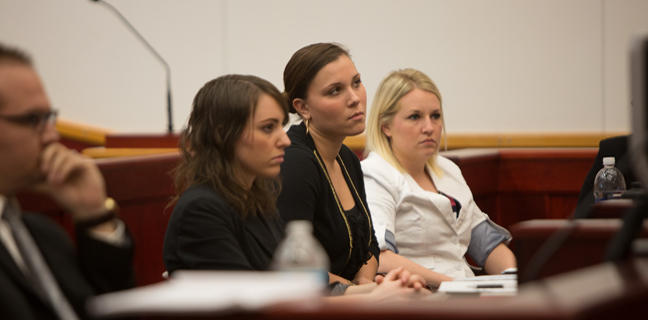General Civil Practice Clinic

The General Civil Practice Clinic allows students to directly serve individuals from the community in an array of civil issues.
Funding support for the General Civil Practice Clinic is provided in part by Rose Vasquez, LW’85.
General Civil Practice Clinic
In the General Civil Practice Clinic, students represent clients who could not otherwise afford legal assistance. Typical cases include landlord/tenant disputes, divorce and custody matters, domestic abuse, contempt proceedings, guardianships, and small claims.
Students conduct intakes, interviews, and fact investigations; draft legal documents; handle negotiations; and represent clients in court hearings and trials, including jury trials.
In addition, students participate in case selection and weekly classes.
Requirements:
Students are required to attend orientation. Limited to students who have completed three semesters or more of law school and are eligible to receive a student practice license.
Advanced Civil Practice Clinic
The Advanced Civil Practice Clinic differs from the General Civil Practice Clinic in that each student is assigned cases most likely to go to trial.
In such cases, the advanced student would be the lead student attorney, and a new general practice clinic student would second chair the trial.
Requirements:
Students must have completed an entry level clinic course and have permission from the instructor.
Faculty
Sally Frank, Professor of Law
515-271-3909 sally.frank@drake.edu
View Profile
For Prospective Clients:
The General Civil Practice Clinic has two intake days per year, typically in August and January. During intake days, family law cases are accepted, including custody, divorce (with or without children), and modifications to decrees.
Certain types of cases may still be accepted after the intake days, including small claims (under $6,500), landlord/tenant (excluding evictions), guardianship, domestic abuse, step-parent adoption, and denied unemployment cases.
Various criteria are used to determine which cases are accepted, including the difficulty of the case, the educational value to the student, and the availability of student attorneys.

